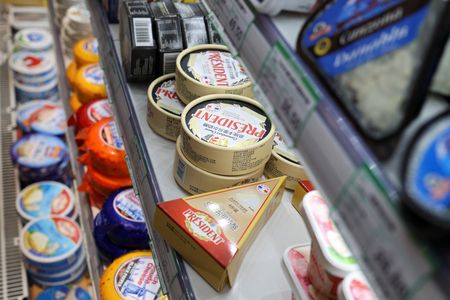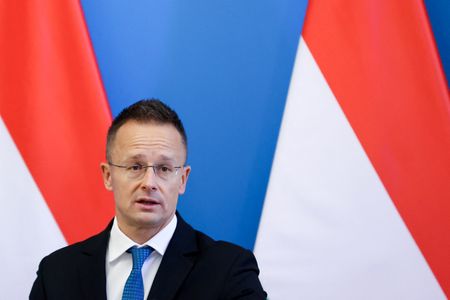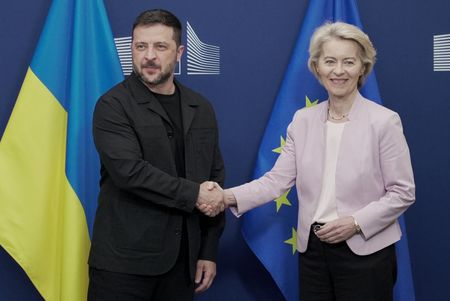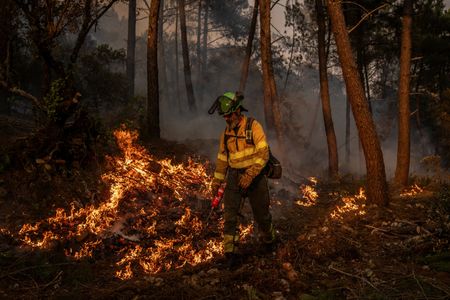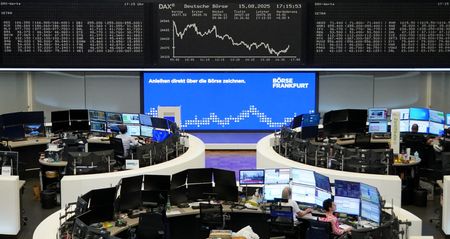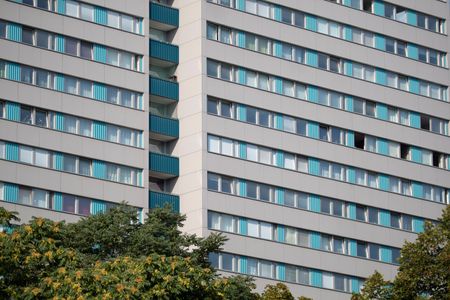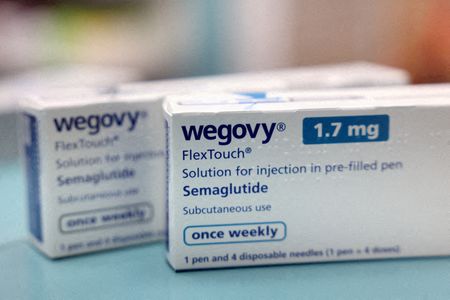By Ella Cao and Joe Cash
BEIJING (Reuters) -China extended on Monday its anti-subsidy investigation into European Union dairy imports by six months, showing little sign of let up in a two-front trade war with Brussels and Washington that threatens to upend its export-orientated growth model.
The Ministry of Commerce said it had prolonged the investigation period to February 21, 2026, citing the case’s complexity.
Beijing’s decision to extend its probe into some EU cheese, milk and cream products comes after it rolled over in June an investigation into European pork, of which it is also a major buyer, and in July announced duties on EU brandy producers – though major cognac makers were spared provided they sell at or above a minimum price.
China is seeking a lasting trade truce with the United States and EU to preserve its export engine as it struggles with the prospect of overhauling its economic model, analysts say, with domestic demand still in the doldrums.
Trade tensions between China and the EU erupted in 2023 when the European Commission – which oversees the bloc’s trade policy – launched an anti-subsidy probe into China-made electric vehicles (EVs), accusing Beijing of flooding the market with state-backed exports.
In April this year, a European Commission spokesperson said the EU and China had agreed to look into setting minimum prices of Chinese-made electric vehicles instead of tariffs imposed by the EU last year.
The two sides have yet to reach a deal.
“Beijing is still hoping to come to terms with the EU on a long list of trade conflicts,” said Even Rogers Pay, an analyst at Beijing-based Trivium China who specialises in agriculture.
“This investigation – along with the investigation into EU pork, which was extended in June – are significant bargaining chips in the ongoing negotiations around the EU’s tariffs on Chinese new energy vehicles,” she said.
China originally announced the dairy probe a year ago, a day after Brussels revised duties on Chinese-made electric vehicles but refrained from abandoning them as Beijing had urged.
(Reporting by Ella Cao, Xiuhao Chen and Joe Cash; Editing by Christian Schmollinger and Susan Fenton)

